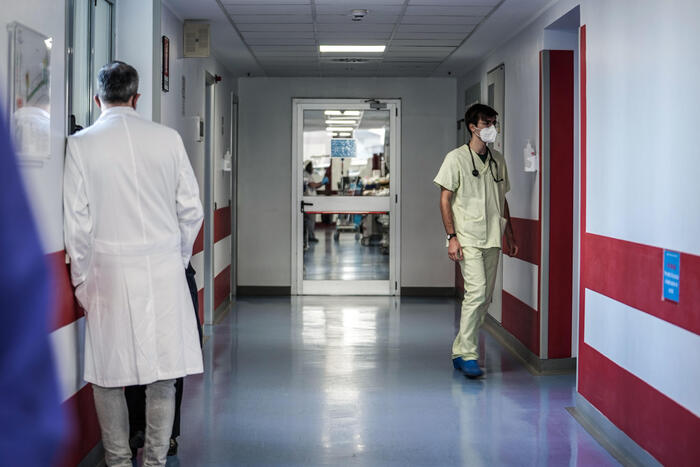On April 30, the last obligation still in force of the package of measures adopted during the pandemic in Italy expires. From May 1st, unless the Ministry of Health decides otherwise, it will no longer be required to wear a mask in all health facilities, hospitals, outpatient clinics and doctors’ offices. The Meloni government has extended the obligation to the end of the month and 2 weeks after the deadline, it is now reconsidering whether to maintain it. In the coming days, the Ministry of Health will decide whether to renew the obligation, whether to make it completely void or whether to soften it – and this would be the strongest guideline – in certain areas, leaving the use of personal protective equipment, according to what we learn, where there are the most fragile patients such as the immunosuppressed or the elderly in the RSA.
Among the hypotheses on the table there is also that of leaving the choice to the general managers but at the moment there is no definitive decision and in the next few days what is happening will also be evaluated from an epidemiological point of view. In this regard, the Undersecretary for Health Marcello Gemmato had recently invited not to have an “ideological” approach and the experts, even if they seem divided on the advisability of maintaining the obligation, agree on the importance of leaving the protection in the areas where there is they are the most fragile patients. “I hope the obligation to wear a mask in health facilities will not continue, even if, in situations where it is recommended and appropriate, I will continue to use it and ask others to do so. However, we must get out of the dimension of the obligation, it is time to negotiate Sars-Cov-2 like other similar viruses. Doing so would have positive effects on many aspects that weigh down the hospital organization, linked for example to tampons”.
Thus at ANSA is Matteo Bassetti, director of the Infectious Diseases Clinic of the San Martino Polyclinic Hospital in Genoa and president of the Italian Society of Anti-infective Therapy (Sita). “Naturally – continues Bassetti – I will continue to use the mask in the hospital if I enter the room of an immunosuppressed person or if I am in contact with a potentially infected person, as I did even before the obligation to wear masks introduced in 2020 to curb the spread of the Sars-Cov-2. And I will also ask those who work with me and the family members who intend to visit these patients to do so”. However, putting it on the level of obligation now “makes no sense because Sars-Cov-2 is no more serious today than other respiratory viruses”. Stopping the obligation to wear a mask, he continues, “is a way to return to normal on other closely related aspects, such as the double path that Sars-Cov-2 positives have in the hospital, albeit asymptomatic but also the swab that is required to access emergency rooms, for hospitalization, for a medical examination.These are choices – he concludes – which are the responsibility of the health structures but are no longer linked to the protection of patients, who on the contrary face complications, but to protect themselves from possible complaints”.
“Personally, I believe that the obligation to wear a mask in hospitals and healthcare environments should be maintained everywhere. Alternatively, in hospitals the obligation could be limited only to wards where fragile, immunosuppressed patients and patients at risk of infections are hospitalized. And in other contexts , for example crowded clinics with long waits, to contain the circulation of pathogens, especially during the flu season”, explains Nino Cartabellotta, president of the Gimbe Foundation. In recent weeks, some countries have already decided to eliminate the obligation and on April 6 this decision was adopted in Portugal.
